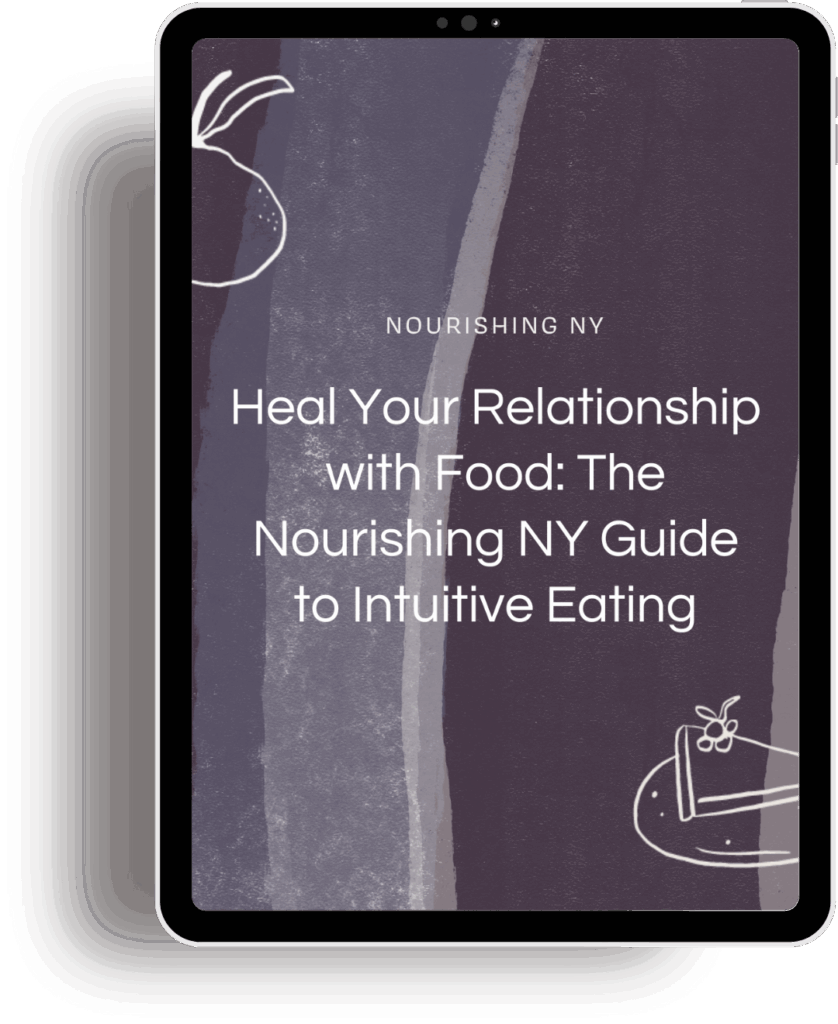While the terms “dietitian” and “nutritionist” might seem interchangeable, they are actually quite different. Understanding the distinction can help you make more informed decisions around your nutrition care.
Myth #1: Nutritionist and Dietitian Mean the Same Thing
One of the biggest differences between a dietitian and a nutritionist is the credentialing and licensing process. To hold the title of Registered Dietitian, a person must complete accredited coursework, a clinical internship, pass a national exam, and stay current on evidence-based practices through continuing education. Once credentialed, a dietitian can also become licensed in various states to provide medical nutrition therapy.
Nutritionists, on the other hand, are not required to have any licensure or credentialing, and the title is not regulated. Essentially, anyone can call themselves a “nutritionist.” Because of this, essentially anyone can call themselves a “nutritionist.” This lack of oversight can be concerning, especially if you’re looking for a qualified professional who provides safe, evidence-based care
Myth #2: Anyone Can Give Nutrition Advice
The medical complexities of eating disorders require a significant understanding of how the body works – clinically, physiologically, and psychologically. Nutrition guidance should come from a source you can trust, both reputable and qualified. Without proper training and education, it could be hard for an unqualified individual to fully assess you, and following recommendations from an unqualified individual could be detrimental to your health and your treatment. Examples of the potential risk of seeking advice from an unqualified individual include: missed diagnoses, worsening of health, unsafe practices (i.e. reinforcing disordered behaviors), and lack of individualized care.
This concern has grown with the rise of social media, particularly TikTok, where many self-proclaimed nutritionists and health coaches share advice that is largely anecdotal. From “what I eat in a day” videos to rigid workout routines and commission-based supplement recommendations, there’s been an upward trend in unqualified influencers changing the way people think about and view nutrition.
Beyond the lack of credentials, this type of content can promote harmful behaviors, praise weight loss, and encourage viewers to follow advice that is often not evidence-based. In fact, recent studies suggest that only a small percentage of nutrition content online actually aligns with evidence-based recommendations (Grgurevic et al., 2025).
Myth #3: A Dietitian Only Gives Meal Plans
One of the most common misconceptions about dietitians is that their primary role is to provide meal plans. While meal plans can be helpful, they represent only a small part of the work you do with a registered dietitian. As noted above, dietitians provide medical nutrition therapy and in doing so, offer psychoeducation, support, and strategies to navigate diet culture. Eating disorder dietitians, more specifically, help clients explore their relationship with food, their body, and set personalized goals to meet their nutrition needs. For example, they might work on identifying fear foods and reintroduce those foods through exposure work, help rebuild hunger and fullness cues with consistent eating, and collaborate with other members of the care team. Your dietitian aims to cultivate a therapeutic relationship that provides ongoing support and care throughout your recovery journey.
Myth #4: NYC Dietitians Are Too Expensive/Unavailable
OPTION 1: Having access to treatment can make a significant difference in your overall recovery journey. Working with an eating disorder registered dietitian NYC should be both accessible and affordable, which is why Nourishing NY is in-network with several major insurances. Nourishing NY will verify your insurance benefits prior to beginning sessions to determine what type of coverage you have. If your insurance does not cover nutrition counseling, you may be eligible for a sliding scale option – a reduced fee to help make services more affordable. Additionally, our registered dietitians offer both in-person and virtual appointments, giving you the flexibility to fit your schedule. Learn more about insurance and coverage here.
OPTION 2: Having access to treatment can make a significant difference in your overall recovery journey. Working with an eating disorder registered dietitian NYC should be both accessible and affordable, which is why Nourishing NY is in-network with several major insurances. Nourishing NY will verify your insurance benefits prior to beginning sessions to determine what type of coverage you have. If your insurance does not cover nutrition counseling, you may be eligible for a sliding scale option – a reduced fee to help make services more affordable. Additionally, our registered dietitians offer both in-person and virtual appointments, giving you the flexibility to fit your schedule.
The Real Value of a Registered Dietitian NYC
When you work with a registered dietitian NYC, you receive evidenced-based care, a holistic, person-centered approach, and a trustworthy professional to help you navigate your nutrition journey. A registered dietitian meets you where you’re at, helping you set realistic goals and offering practical tools and strategies that fit your life. They provide clinical oversight, support you in building a healthier relationship with food and your body, and help you navigate the ever-changing, often overwhelming world of diet culture. Having a registered dietitian by your side ensures you receive the safe and effective care you need for sustainable and meaningful change.
Reach out today to learn how a Nourishing NY Registered Dietitian NYC can support you on your journey! Contact Us
Sources: Grgurevic, J., Diyab, R., & Roy, R. (2025). #WhatIEatinaDay: The quality, accuracy, and engagement of nutrition content on TikTok. Nutrients, 17(5), 781. https://doi.org/10.3390/nu17050781



